The week ahead in Parliament
- Published
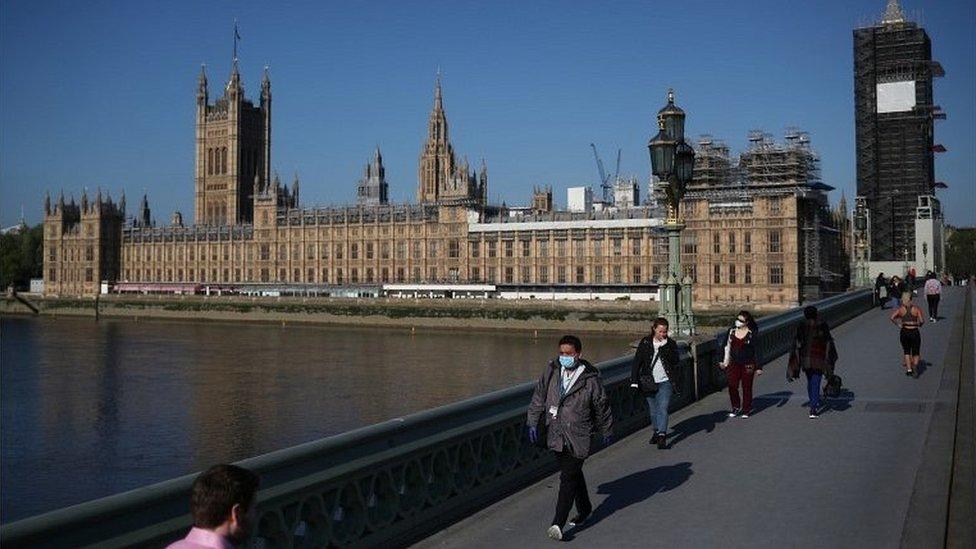
Parliament is tottering towards the oasis of the summer recess, but there's some serious legislating to do, before MPs and peers can begin their staycations.
This week it's the reorganisation of the NHS in England - but coming down the track for the final week of term are two hyper-contentious measures, in the Building Safety Bill (very important, post Grenfell Tower) and the Nationality and Borders Bill.
One important theme to keep an eye on this week is planning, with a couple of Westminster Hall debates reflecting the anxieties after the Chesham and Amersham by-election of Conservative backbenchers about centrally-imposed planning decisions on new developments.
Tory MP Steve Baker leads a debate on Tuesday about the development zone in the "Oxford-Cambridge Arc" in which he will air concerns that much of the South East could be subsumed into a London megacity.
And on Thursday another Conservative, Bob Seeley, leads a backbench debate on the Planning Bill, highlighting fears that the planning reforms proposed by the government will remove the last vestiges of control from local communities. No actual vote, but both will demonstrate the rising Conservative anxieties.
Committees are quieter - and there's a disappointment is that a projected hearing of the Public Administration and Constitutional Affairs Committee with Whitehall ethics boss Sue Gray, one of the least known but most powerful officials in government, has been cancelled.
She had accepted an invitation to give evidence to their inquiry into the Greensill affair, the convoluted tale involving lobbying by the former PM David Cameron, but that appearance has now been ruled "inappropriate" by the boss of the Cabinet Office, Michael Gove, who volunteered to appear in her place. Watch that space.
Here's my rundown of the week ahead.
Monday 12 July
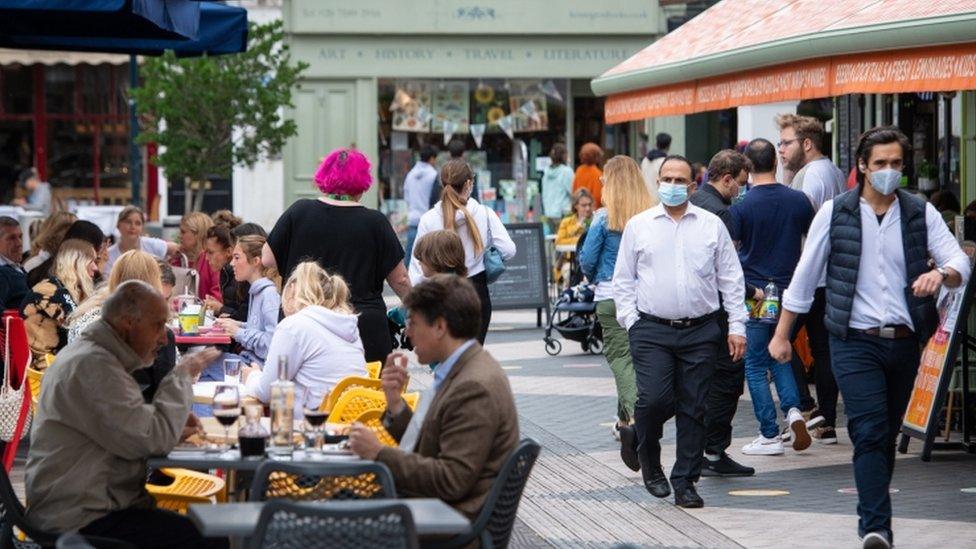
The government plans to relax most remaining Covid restrictions on July 19
The Commons week opens (14:30) with an hour of questions to Home Secretary, Priti Patel - after which, the expectation is, there will be a big ministerial statement confirming (or otherwise) the government's plans to lift most COVID restrictions from 19 July..
The main legislative action is the initial debate on the Higher Education (Freedom of Speech) Bill which will require universities and colleges to defend free speech and help stamp out unlawful 'silencing'. It will apply to student unions.
In Westminster Hall, there are debates on e-petition 564582, external, calling for the government to "significantly increase targeted research funding for motor neurone disease (MND)" and on e-petition 576563, external, on water safety, calling for children to be taught about hazards like cold water shock and rip currents.
The Public Accounts Committee (14:30) returns to one of its hardy perennials, improving the performance of defence contracts, while Scottish Affairs, fresh from visiting the Orkneys, quizzes energy minister Anne Marie Trevelyan on Scotland's renewable energy potential.
In the Lords they're holding another by-election to replace a hereditary peer - it shouldn't take long because there are only three voters - and there will only be one candidate, the third Viscount Stansgate. He is Stephen Benn, the son of the late Labour patriarch, Tony Benn, who, 70 years ago, fought a long legal battle against being elevated to the Lords as a hereditary peer, because he wanted to remain as an MP after his father died. A nice historical irony.
When the House begins work (13:00) ministers answer questions on the killing of peaceful protesters in Columbia, illegal riding of e-scooters and an industrial strategy for steel. Then, peers reach their seventh day of detailed scrutiny of the Environment Bill, which will cover protections for marine areas, species conservation, the role of national parks, tree planting, and whether local councils have the funds to perform their new environmental functions.
Tuesday 13 July

The Armed Forces Bill is causing disagreement amongst MPs
MPs begin (11:30) with Health and Social Care questions
Conservative MP Felicity Buchan wants to propose a bill to require charging points for electric cars to be included in the design of new buildings, and after that, the Commons turns to the detail of the Armed Forces Bill, the five-yearly legislation confirming the legal framework for the Army, Navy and RAF.
I hear whispers that there may be some action around how to deal with historic investigations of soldiers who have served in Northern Ireland - but no amendments had appeared on this issue by the deadline on Thursday.
Labour will propose amendments to toughen up the Armed Forces Covenant provisions of the bill, which at the moment mostly impose obligations to provide services on local, rather than national government, and to create an Armed Forces Federation to represent service personnel on issues of welfare, pay and efficiency.
The SNP has an amendment on accommodation standards for service personnel.
Of course, given the government majority in the Commons, amendments opposed by ministers have little chance of success, but they do pave the way for action in the Lords, where the government does not have a majority and a posse of retired generals and admirals are ready to pursue some of these causes.
Further significant action follows; first, MPs will consider new coronavirus regulations, to boost safety in care homes. The idea is to make high-risk environments as safe as possible by requiring all CQC-registered care homes to require people entering the home to have been vaccinated with the complete course of an authorised vaccine, with exceptions for emergency workers, or people visiting dying patients, and under-18s.
Essentially it's about ensuring staff are vaccinated, unless they have clinical reasons not to be.
And then there will be a debate on ditching the EVEL (the Commons' English Votes for English Laws standing orders) - the provision which gives English MPs a separate vote on England-only laws, excluding Scottish, Welsh and Northern Irish MPs.
The system has been suspended since the onset of the pandemic, and the situation it was designed to avert, of a law being imposed on England by a majority made by non-English MPs has not occurred since it was created.
Committee action includes Health and Social Care (09:30) kicking off their inquiry into why England lags behind in cancer survival and looking at how Covid-19 has disrupted cancer services. The committee will quiz cancer directors at NHS England on what is needed to address the backlog in cancer diagnosis and treatment caused by the pandemic. And Education (10:00) hears from education unions on the impact of Covid-19 on schools.
In the Lords (12:00), ministers answer questions - and then debate whether to return to their pre-COVID working practices after their summer break.
There's a whole bundle of issues here - whether to continue to use the online voting system developed during the pandemic, and how far the exceptions made for peers with "long term disabilities" extend.
Some backbench peers quite like their new working practices, and some issues may be pushed to a vote, particularly the central question of whether to switch back to pre-Covid working hours or stick with the earlier starting times adopted during the pandemic. Labour's Lord Adonis is on the warpath, tweeting that the Opposition (ie his own leadership) should not be playing the government's game.
Wednesday 14 July
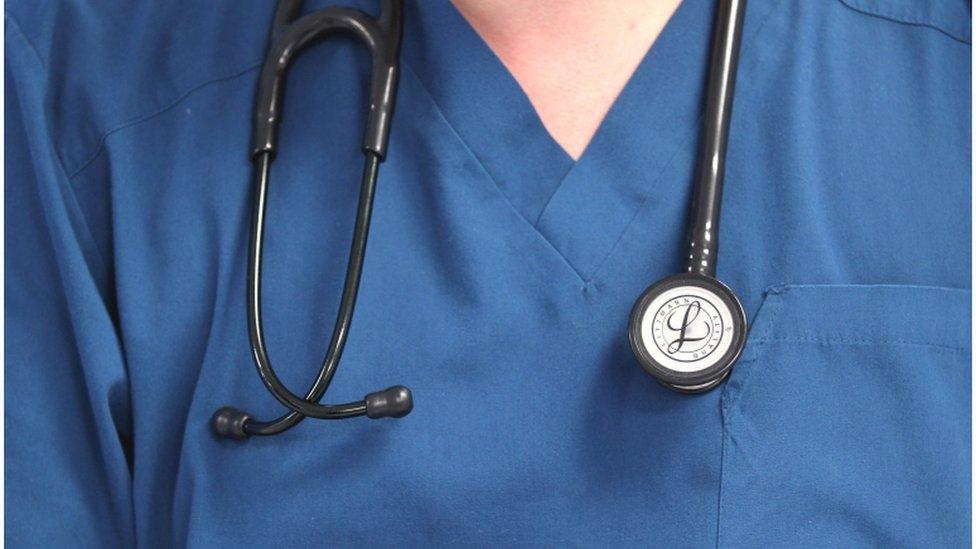
MPs are to discuss a planned reorganisation of the NHS
The Commons opens (11:30) with half an hour of questions to the former Business Secretary Alok Sharma, in his role as President of the COP26 Climate Summit, due to be held in Glasgow in November. That is followed, at noon, by questions to the PM.
The main event is the initial debate on the Health and Care Bill - the package of reforms to the running of the NHS in England devised by the previous health secretary, Matt Hancock. It aims to create Integrated Care Boards and Integrated Care Partnerships, bringing together local NHS and local councils so that services like social care, mental health services and public health advice work together more effectively.
A key concern for the government is the timing; the NHS will want to be able to start the new system at the next financial year, which gives the Lords, in particular, a great deal of leverage in any amendments it passes, because, given the probable timing of their debates, come next January or February, ministers will be faced with a choice between accepting unwelcome changes or having to delay the arrival of a new system in order to remove them.
In Westminster Hall (16:50), former space minister Chris Skidmore leads a debate on space debris. It's a potentially huge problem if satellites are damaged or collide with debris in orbit; for example, if the GNS system went down it would cost the UK £1bn a day.
For committees - the Petitions Committee (09:30) is launching an inquiry to examine the impact of Covid-19 on new parents, one year on from its report which found the issue had been neglected. And Environmental Audit (14:30) has a session on making new homes meet the UK's net zero goals quizzing a panel of witnesses headed by the former environment secretary, Lord Deben.
In the Lords (12:00) question time ranges across the objectives of the National Lottery and elder abuse. Then peers reach the final day of detailed consideration of the Environment Bill. The next stage - which is report stage - will follow in the autumn, but in the meantime watch out for government concessions on a variety of issues highlighted by probing during committee.
Thursday 15 July

Protests have been taking place against the Northern Ireland Protocol
The Commons opens (09:30) with an hour of International Trade questions, followed by the weekly statement on the following week's business.
The main debates are on backbench motions - first, the senior Conservative Sir Bernard Jenkin leads a debate on the Northern Ireland Protocol, on a motion regretting the prospect of EU legal action against the UK government for breaches of its terms. The motion is signed, mostly, by senior figures from the Brexiteer European Research Group, and pretty much reflects the government's position. Part of the point is to suggest to the international community that Britain feels unfairly treated by the EU.
That is followed by a motion proposed by Conservative ex-minister Tim Loughton, calling for the UK government to boycott the 2022 Winter Olympics in Beijing, because of atrocities in the Xinjiang region.
In Westminster Hall (13:30) Tory MP Bob Seely leads a debate on the future of the planning system in England and the forthcoming Planning Bill. He has already denounced the proposals in the bill as a "free for all" and "electorally toxic". He has also attacked "flawed and undeliverable" government targets for new housing imposed on local councils.
In the Lords (12:00) there are questions on human rights abuses in Bahrain and then peers return to the detail of the Skills and Post-16 Education Bill.
Friday 16 July
The Commons is not sitting, but peers meet (11:00) to discuss private members' bills, starting with debate on the Conservative former cabinet minister Lord Lilley's Elderly Social Care (Insurance) Bill.
Then comes discussion of the sinister-sounding Organ Tourism and Cadavers on Display Bill from Labour's Lord Hunt of Kings Heath. This aims to ban UK citizens from travelling to China to receive organ transplants that may well have come from political prisoners. It also aims to ban the use of human remains in exhibitions intended for entertainment, partly on the grounds that, again, the source of the remains may be executed prisoners.
And finally we can expect the second reading of the Education (Environment and Sustainable Citizenship) Bill from the Labour former education minister, Lord Knight of Weymouth.
Related topics
- Published1 July 2021
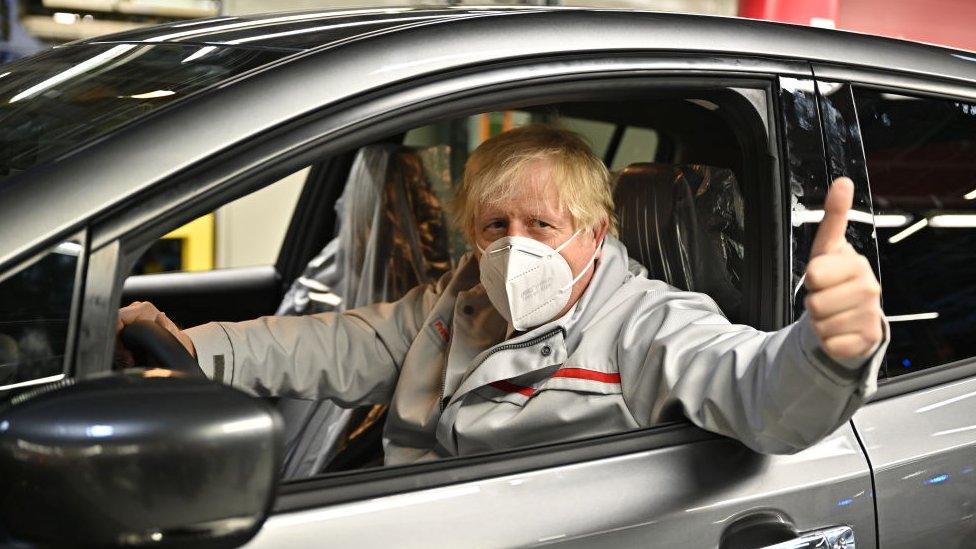
- Published2 July 2021
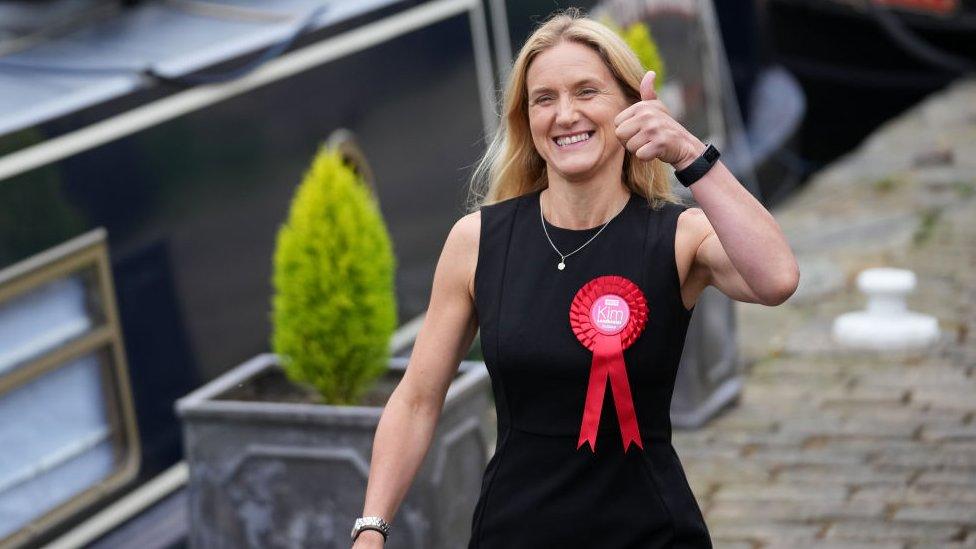
- Published5 August 2021

